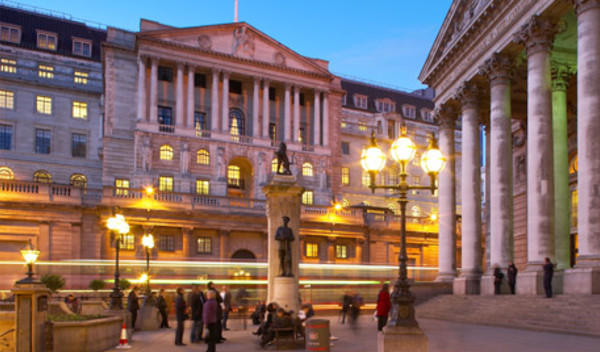

Investors need to start priming their portfolios for a rise in inflation as experts predict prices are likely to rise throughout the developed world.
The eurozone has been in deflation since December 2014, while the UK has registered two consecutive months – February and March – of 0 per cent consumer prices index (CPI) inflation.
But the market has begun to price in a faster rise in inflation than previously expected, which could accelerate further if commodity prices such as oil start to rebound.
In the minutes of the latest monetary policy committee (MPC) meeting, the Bank of England (BoE) said although it expected the UK to dip its toes into deflation, there were signs of price rises on the horizon.
The BoE said there was evidence there would be “less downward pressure on prices to come and a faster pickup in inflation when the effects of recent falls in energy and food prices dropped out of the annual comparison”.
Samuel Toombs, senior UK economist at Capital Economics, said the BoE comments suggested the central bank might revise upwards its expectations for UK inflation in its next inflation report in May.
Even when the impact of energy and food price falls is removed from the UK CPI figures – something economists do to calculate ‘core’ inflation – then prices increased by only 1 per cent in the past year.
The BoE said there would need to be more of a sustained increase in wages to fuel a larger move upwards in inflation that would help reach the central bank’s 2 per cent target.
However, there are signs wage inflation in the developed world is starting to pick up. Germany’s largest trade union, IG Metall, has negotiated a 3.4 per cent pay increase for its members, in spite of deflation in the eurozone.
In Europe, the market has already made a significant change in its expectations for inflation. At the start of the year, deflation was expected to persist throughout 2016, rising to 0 per cent CPI in 2017, according to research from M&G Investments’ Bond Vigilantes team.
Just four months later, the market now expects inflation to hit 1 per cent in 2016, a shift which M&G attributes to a series of better-than-expected data from the eurozone
According to Invesco Perpetual’s chief economist John Greenwood, the persistently low inflation in the developed world in recent years has been caused by the “disappointingly low” growth in money and credit supply.
However, a study in February this year by Tim Congdon from International Monetary Research found “bank credit to the US private sector has started to grow strongly”, supporting the view that money supply, at least in the US, could start to drive inflation higher in the medium term.
Psigma Investment Management’s chief investment officer Tom Becket has warned investors to beware a resurgence in inflation and to consider introducing inflation hedges, pointing to wage growth and money-supply growth picking up across the developed world.
Gold price remains low in spite of long-term inflation warnings
Although there are signs a pick-up in inflation may be on the horizon, investor sentiment towards one of the most traditional inflation hedges, gold, remains very low.
The price of the precious metal has fallen from $1,883 (£1,253) per ounce in August 2011 to $1,189 now, but a survey of UK investors by Legg Mason Asset Management found few people expecting it to recover.
The survey of 200 UK investors each with at least $200,000 of investable assets found only
2 per cent had any gold in their portfolio at the start of 2015.
However, the survey revealed 16 per cent of UK investors wanted to increase their gold exposure in 2015, though that was much lower than the 29 per cent planning to increase exposure to equities or the 25 per cent looking to up their cash holdings.



